How a photo-finish verdict was the start of Henry Cecil’s incredible run - sporting bygones
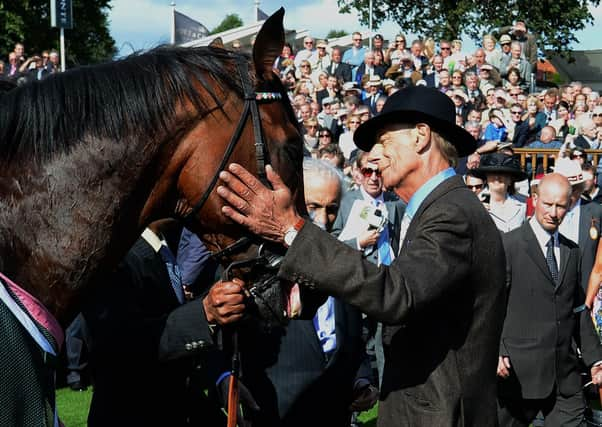

They admired his success; he respected their knowledge. They celebrated his triumphs and stayed faithful during times of heartbreak in his life.
It is why he was so determined to travel to York in 2012, despite being seriously ill with cancer, where his incomparable Frankel turned the Juddmonte International into a one-horse race in a career-best run.
Advertisement
Hide AdAdvertisement
Hide AdAs three cheers for Sir Henry were called for, a gaunt and painfully thin Cecil took off his Fedora to acknowledge old friends while holding back the tears. In his heart, he knew he would not be back but the trainer of more than 3,000 winners did find the strength to whisper that he felt “20 years better”.
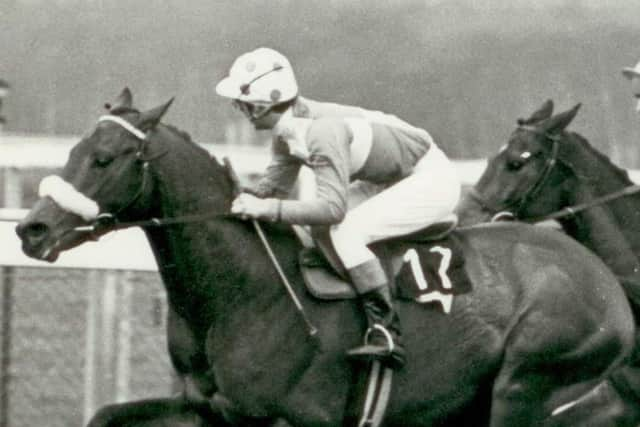

One of the trainer’s last great triumphs – Frankel did extend his unbeaten record to 14 in the Champion Stakes at Ascot – Cecil was back in the county where he recorded his very first winner at Ripon on May 17, 1969, or did he?
Even now there is considerable conjecture over whether the Cecil-trained Celestial Cloud held on to win the Newby Amateur Riders’ Maiden Stakes from the rallying Arthur’s Connection.
“The thing I remember him saying is that he didn’t go to Ripon,” Sir Henry’s widow Lady Jane Cecil told The Yorkshire Post. “He was getting frustrated that he had not had a winner.
Advertisement
Hide AdAdvertisement
Hide Ad“It was also a photo-finish and, on studying the print later, he seemed to think that the other horse had won.”
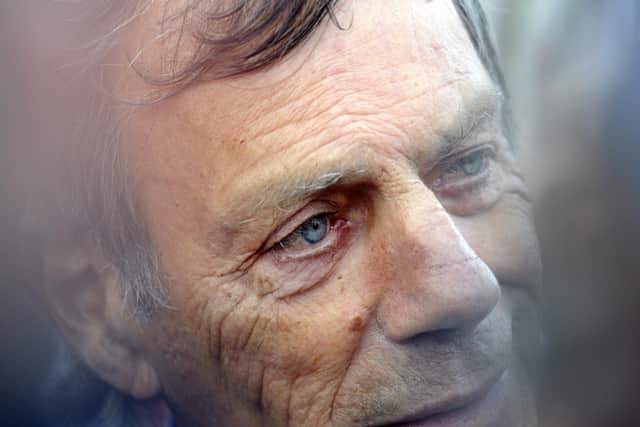

Celestial Cloud’s jockey, Billy O’Gorman, had little idea that this race would become a tricky quiz question – who rode Henry Cecil’s first winner?
He had been buoyed by a win at Ascot on Alvaro, the horse who then provided Pat Eddery with a first career winner at Epsom in April, 1969. Now the headstrong jockey was launching a second great career in as many months.
“I thought I was a whizz-kid and could ride anything with hair on,” O’Gorman told this newspaper ahead of the landmark’s anniversary. “As far as I knew, he was just another well-spoken young man (Cecil was 26 at the time) who thought he knew it all.
Advertisement
Hide AdAdvertisement
Hide Ad“They were nervous because they hadn’t had a winner. I also said the horse needed blinkers on. Henry said ‘We don’t do that’. I don’t know if I won, I didn’t really care, but Henry was launched. Did I think he’d go on to achieve what he did? No. It was a moderate race. Henry became so good because he got more horses fit than anybody else.”
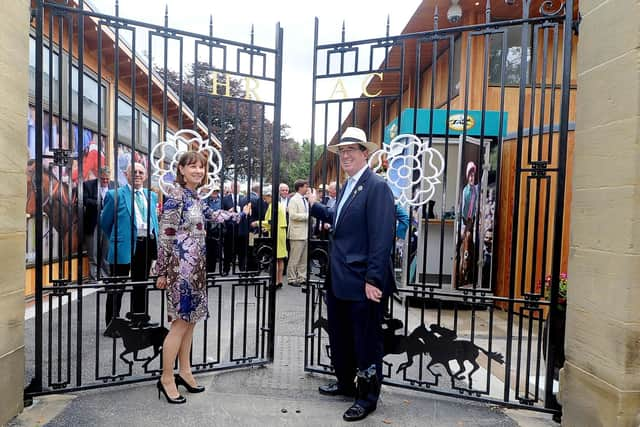

Yet this ‘win’ had tragic beginnings. Cecil and his twin brother David had been born in Aberdeen on January 11, 1943, weeks before the Luftwaffe targeted the granite city.
Their aristocratic mother, Elizabeth Rohays Cecil – whose family owned Crathes Castle – was also coming to terms with confirmation that her husband, Henry Kerr Auchmuchty Cecil, had been killed in action with the Parachute Regiment in North Africa.
Now, a single mother with four young sons, serendipity played its part when she moved her family to Newmarket for their own safety. There, she married Captain Cecil Boyd-Rochfort – a champion trainer whose patrons included King George VI.
Advertisement
Hide AdAdvertisement
Hide AdThe captain was to become the ultimate stepfather and racing tutor to Cecil and his twin David, who also excelled as a trainer before, in a tragic twist of fate, succumbing to cancer in November, 2000.
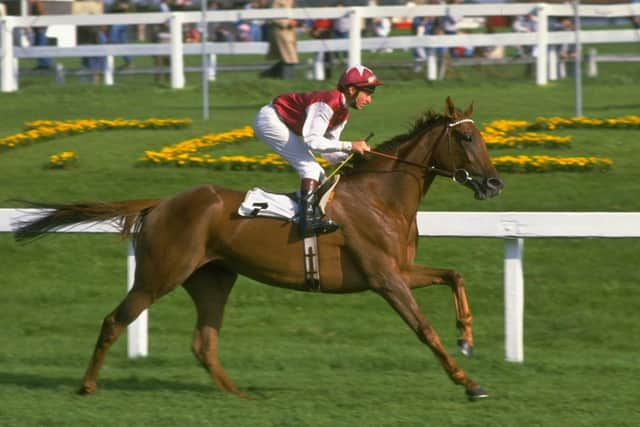

Cecil became assistant to his stepfather and, after his marriage to Julie Murless, the daughter of trainer Sir Noel Murless, turned his thoughts to training in his own right.
“My first few months constituted the cold, dark winter of 1968-69, which was hardly calculated to raise anybody’s spirits,” wrote Cecil in his memoir On The Level that was published in 1983.
“The horses had to have most of their exercise on the thick covering of straw that we put down in the paddock. The staff were, on the whole, pretty rough, but I did acquire a marvellous head man in Paddy Rudkin.
Advertisement
Hide AdAdvertisement
Hide Ad“Among the lads under Paddy when he first came to me were several who had drifted from yard to yard like itinerant tinkers, their only references being on the files of the local police station.”
The police, he went on, became regular visitors to his yard. Harnessing really competent stablemen became Cecil’s priority – and integral to subsequent successes. So, too, the 9.30am working breakfast with Rudkin, and his wife Joy, to discuss the horses and racing programme.
Despite Cecil complaining about Joy’s burnt toast and overboiled eggs, the meetings were useful and became a ritual. “Horses are the raw material of our trade,” he observed.
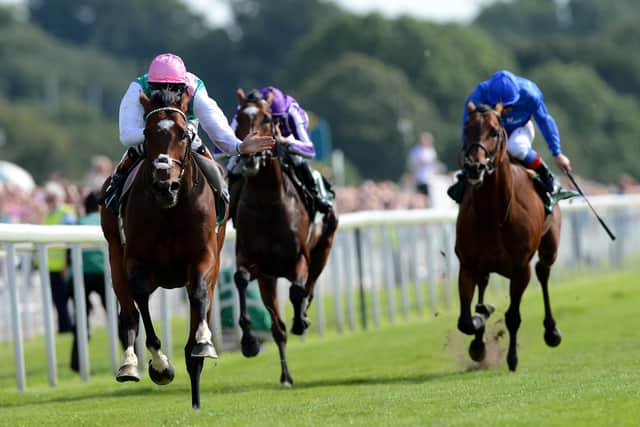

But the languid Cecil was despondent in 1969. Twenty-five runners had drawn a blank – despite high expectations. He sent five fancied runners to Nottingham, with three carloads of friends, certain that this would be the day. Of the quintet, four were unplaced and the least fancied of all was second in a handicap off bottom weight.
Advertisement
Hide AdAdvertisement
Hide AdIt was a formative experience. “Sir Noel Murless was beginning to feel very sorry for me, and no doubt anxious about the security of his daughter,” confided Cecil in his book. “He never liked to interfere, but after watching my string work one day, he told me: ‘Your horses are galloping like a lot of old gentlemen. You must make them work!’ I knew he was most embarrassed at having to point this out, but I have never been more grateful for a piece of advice.
“I gave up going to racing because I was tired of hearing people saying ‘Don’t back that. It’s Cecil’s. He couldn’t train ivy up a wall’. Julie went out to represent me.”
The ‘ivy’ comment hurt, and was cruel, because Cecil’s second great passion was gardening. On the day of Celestial Cloud’s race, his wife had headed to Ripon and a downcast Cecil did not even listen for the result on the radio.
When one of his lads later told him ‘Well done, guv’nor, your first winner!’ Cecil gave out a nonchalant, disbelieving smile before jumping into his car and driving as fast as he could to the nearest betting shop to check the result for himself.
Advertisement
Hide AdAdvertisement
Hide AdHe was waiting at the end of the drive, tears rolling down his cheek, when she finally returned “hooting all the way”.
“The thrill of knowing I had trained my first winner is something I will never, never forget,” said Cecil before adding one caveat. “However many times I look at the Press print, I cannot change my opinion that it hardly suggests that we did win.”
In July, he won the Coral-Eclipse, a first Grade One success, with the Lester Piggott-ridden Wolver Hollow.
Now, there was no doubting that 70-year-old Sir Henry Cecil, who lost his unequal fight with stomach cancer in June 2013, had, indeed, been born to train horses.
Advertisement
Hide AdAdvertisement
Hide AdSIR Henry Cecil saddled over 3,000 winners from 1969 to 2013 and and was champion trainer on 10 occasions.
The winner of a then record 75 races at Royal Ascot, he also won 25 domestic Classics.
In 1985, he won the fillies’ Triple Crown when Oh So Sharp won the St Leger under Steve Cauthen.
His latter years were dominated by the successes of Frankel, including the horse’s emotional win at York, and his courageous battle with cancer.
Advertisement
Hide AdAdvertisement
Hide AdYet, before Frankel’s final race at Ascot in October, 2012, he very kindly answered a series of questions that The Yorkshire Post had emailed to him.
An act of kindness so typical of Sir Henry, his answers explained his affinity for his horses and why racing became touched by his greatness after an unpromising start.
“Everything I do is by instinct; I don’t bother about form books and whether a horse beat me one length last time out if I’m running against it again,” he responded. “I just do it by instinct or feeling. You’ll go away and say ‘Doesn’t he talk a lot of rubbish?’ but actually horses talk to you.
“If you actually study horses, their expressions and their mannerisms, then they tell you when they’re not right or what’s wrong or whether they’re well or not, just by looking at them.”
Advertisement
Hide AdAdvertisement
Hide AdEditor’s note: first and foremost - and rarely have I written down these words with more sincerity - I hope this finds you well.
Almost certainly you are here because you value the quality and the integrity of the journalism produced by The Yorkshire Post’s journalists - almost all of which live alongside you in Yorkshire, spending the wages they earn with Yorkshire businesses - who last year took this title to the industry watchdog’s Most Trusted Newspaper in Britain accolade.
And that is why I must make an urgent request of you: as advertising revenue declines, your support becomes evermore crucial to the maintenance of the journalistic standards expected of The Yorkshire Post. If you can, safely, please buy a paper or take up a subscription. We want to continue to make you proud of Yorkshire’s National Newspaper but we are going to need your help.
Postal subscription copies can be ordered by calling 0330 4030066 or by emailing [email protected]. Vouchers, to be exchanged at retail sales outlets - our newsagents need you, too - can be subscribed to by contacting subscriptions on 0330 1235950 or by visiting www.localsubsplus.co.uk where you should select The Yorkshire Post from the list of titles available.
Advertisement
Hide AdAdvertisement
Hide AdIf you want to help right now, download our tablet app from the App / Play Stores. Every contribution you make helps to provide this county with the best regional journalism in the country.
Sincerely. Thank you.
James Mitchinson
Editor
Comment Guidelines
National World encourages reader discussion on our stories. User feedback, insights and back-and-forth exchanges add a rich layer of context to reporting. Please review our Community Guidelines before commenting.